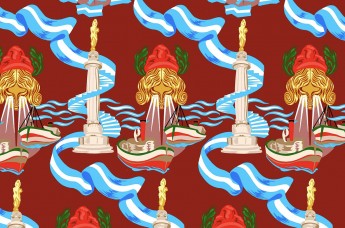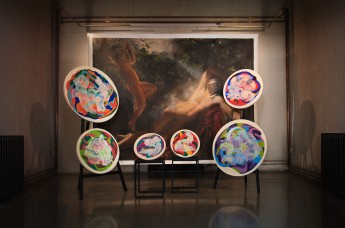Alberto Passolini
Born in San Fernando, Buenos Aires Province, in 1968, Alberto Passolini is an influential Argentinian visual artist whose work bridges history, theory, and artistic practice. Though lacking formal training, his time as an assistant to Víctor Grippo, a pivotal figure in Latin American conceptual art, gave him a profound understanding of the visual arts and their theoretical underpinnings.
Passolini’s research-driven practice investigates 19th-century European artistic traditions in the Río de la Plata, focusing on how art normalized societal structures of gender, race, and class. His 2010 project for the Fundación Malba’s Bicentennial commemorations critically reinterpreted Argentina’s foundational cultural narratives, presenting large-scale paintings that echoed the grandeur of academic art.
Passolini has exhibited widely, with notable solo and group shows including “Nadie sabe de lo mío” (Galería Constitución, 2022), “Las lunas del ovejero” (Chile, 2020), and “Costera Criolla” (CCK, Buenos Aires, 2016). His work has been featured in institutions such as Museo Histórico Provincial Julio Marc, Museo Provincial de Bellas Artes, and Vasari Galería de Arte. Currently, he divides his time between Buenos Aires and Southern Patagonia, continuing to explore the intersections of history, culture, and identity in contemporary art.


